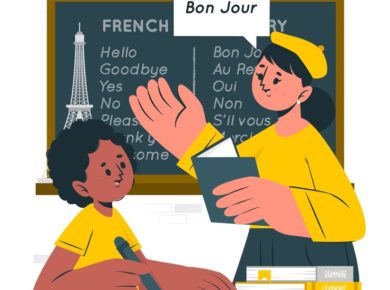In their first year of teaching students, teachers make a lot of mistakes that make them wince. But then, we learn something – the practical aspects of class management. And it’s fair to say that most of what we learn as new teachers about classroom management comes through trial and error. It’s also a good idea to listen to the wisdom of people who have been in the same place before you and have learned from their mistakes. If you’re a new class teacher or having trouble managing your class, here are a few ideas you can use right away.

Classroom management tips for new teachers
The profession of teaching is a powerful one. You can inspire a large number of kids and make a great difference in their lives because of your exceptional demeanor. Excellent teacher teaching is constantly improving and honing their skills.
- Know the topic well
While we’re on the subject of authority, keep in mind that it’s not only about how you look and speak in your teacher’s classroom. You must be a master of your subject to gain respect from your students. Every instructor plans for the next class, but that isn’t enough. One of the most successful classroom management abilities is subject matter competence. You should know everything there is to know about it, inside and out. As a result, you must be able to respond to students’ random, out-of-lesson queries that pop up the majority of the time. And, if you don’t have the correct answer, be brave enough to admit that you’re not sure. Assure them that you will investigate and respond to their question the next day.
- Trust your students
Often, kids respond positively when the teacher shows trust in them. You can exploit this psychological feature to your advantage by involving your pupils in the establishment of classroom rules. When people ask, what are the best class management techniques, we tell them to start by creating a mutually trusting connection with the kids. Ask your students what disciplinary guidelines you should establish for the academic year at the start of each new session. Agree on things like when there should be quiet and when a small commotion is OK, the regulations for using cellphones in the teacher’s classroom, and so on.
- Grab their attention
Holding one hand in the air and making eye contact with kids is a terrific method to catch the attention of your students in your classroom teaching and get them to focus on you. Some time-tested teaching tips include flashing the lights on and off to attract kids’ attention. It might also be useful to regularly remind while teaching students that they only have three minutes to do an assignment or clean up, for example.
- Handling difficult students
The teacher-student relationship is very precious. Make every effort to resolve a conflict between you and a student or between two students as soon as feasible. Bad feelings, whether they’re yours or the students’, can swiftly escalate from molehills to mountains. To maintain the student-teacher relationship, you and the kid should take a step apart from the other pupils to manage those problems wisely. If at all possible, wait until after the class to avoid interrupting the class. Ask open-ended questions like, “How can I assist you?” Don’t make any accusations against the child. Even if you have the opposite emotion at the time, act as if you care for the sake of your student and teacher relationship. Because the student is expecting you to be furious and belligerent, the student will normally become disarmed.
- Be prepared
This is the most crucial teaching tip of all. You may have heard that if you don’t make a plan for them, they will make one for you. Always plan ahead of time for the behavior management of your entire class. It’s preferable to run out of time than to be late for a class. From personal experience and several classroom observations, it can be said with certainty that bored pupils equal problems! When a session is poorly organized, the teacher teaching students generally does far too much talking and telling, and behavior management of students goes awry. We all know that planning interesting classes necessitates a serious mind and a lot of time.
- Make your class interactive.
Today’s educational world recognizes that each kid is unique and requires individualized learning plans. You can’t assume that one solution will work for everyone. As a result, educators all around the world are experimenting with various classroom teaching methods. Personalized learning, game-based classes, flipped classrooms, project-based assignments, group activities, and collaborative learning are all chosen by class teachers dependent on the make-up of their classrooms, whether online or offline. When it comes to using diverse teaching approaches, you’ll need to have some good classroom management abilities. You must determine the types of kids in your classroom and implement some unique teaching tactics to foster your teacher-student relationship.
The Final Word
For a long time, class management has been an issue in building healthy student and teacher relationships. It’s not a one-day job in which you walk into a classroom, tutor your pupils, and then leave. Patience and a step-by-step approach are required for effective class management. You can get better outcomes by implementing the above-mentioned tactics regularly and reaping the rewards for years.
Because we know that every student is unique, and so is every class teacher, we at Classplus have brought a custom-tailored app to address your classroom management needs. We assist teachers in their teaching by providing various features in their app to be the solution to their class management problems. Right from marking attendance to making your class interactive, there is every tool to power your classroom into a smart classroom. Most teachers powered by Classplus focus singly on building a student-teacher relationship while their apps take care of their classrooms.




